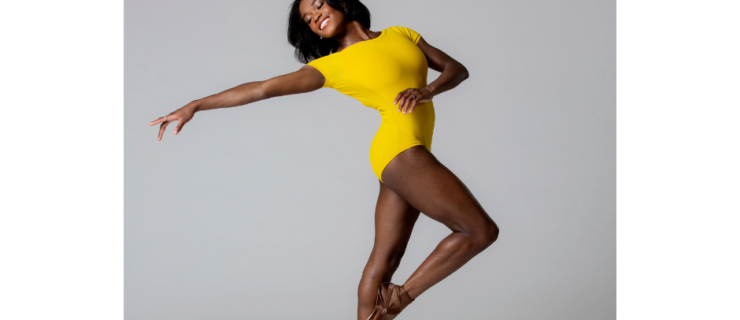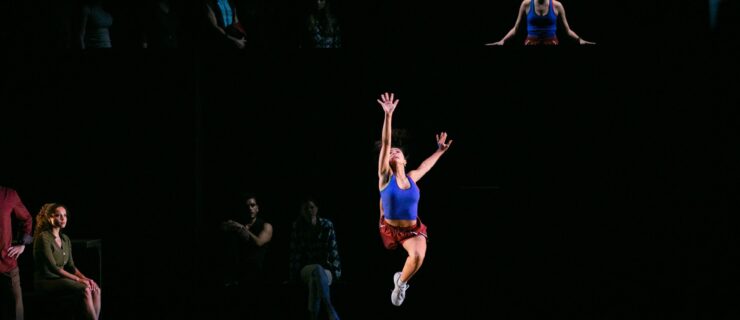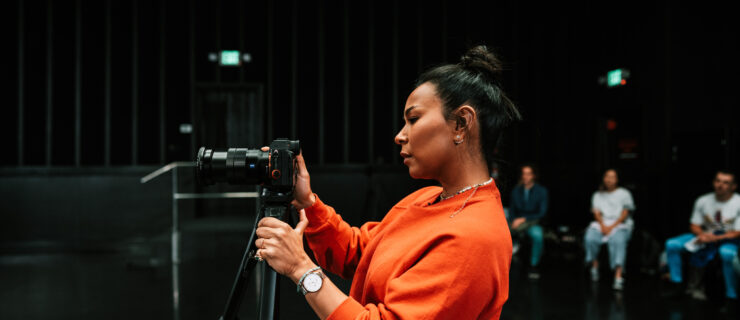How to Stay Grounded in High-Pressure Dance Environments
Picture it: You’re 12 years old, and your mom just dropped you off at your latest dance convention (one of six this year, including Nationals). The ballroom you’ll be dancing in is roughly 65,000 square feet—yet somehow it’s filled near bursting with a sea of talented young dancers in neon clothes who oscillate between deafening chatter and intense focus. In the next two days you will learn roughly seven different combinations, in seven unique genres, from seven different choreographers (each of whom you have spent your young life worshiping). Between classes you will compete in 10 numbers, including your standard team pieces, a solo, small group, extended line and trio. Each dance will be done in front of a row of pursed-lipped judges (many of whom set the choreography on you in the first place), at both unreasonably early and unreasonably late hours. The results of their assessments, along with the results of the scholarship audition you will participate in, will tell you how you fare against your peers—forcing you to navigate feelings of intense pride, or crushing insecurity.
It’s the kind of high-stress/high-prestige environment that would give a fully formed adult anxiety, let alone a developing preteen. We spoke with dance psychologist Dr. Lucie Clements and two dancers who have successfully navigated the pressure cooker of the competition world, Alyssa Allen (Hubbard Street Dance Chicago; 2014 Senior Female Best Dancer at The Dance Awards Las Vegas) and Jemoni Powe (NYU Tisch School of the Arts; 2021 NYCDA National Senior Male Outstanding Dancer), about how to stay grounded in heady dance moments like these.
The Thing About Success
When it comes to staying grounded, some of the biggest hurdles dancers face are awards, titles and scholarships. For many, success can become an extrinsic drive to dance. “You can be regulated by being successful and doing well,” Clements says. “It can be quite addictive.” To combat these feelings, Clements recommends reconnecting with deeper reasons to dance, so whether you are successful or not, your happiness is not dependent on external things like social media likes or winning awards. “The best thing someone could say to me after winning a competition is, ‘Yes, I won, but the most important thing is that I was onstage, I felt good about myself and I had fun,’” Clements says. External validation can come from any hobby or passion. The important thing is, do you really enjoy performing?
Alyssa Allen learned this lesson as a young convention dancer, overcome by nerves, anxiety and high expectations. “For me, winning was the end-all be-all,” Allen says. “I would do anything to get noticed. I was only able to get through competitions because I was surrounded by really cool dancers my age who had a different approach.” According to Allen, her friends did not see winning as particularly important. Rather, competitions and conventions were additional training and performance opportunities to supplement their studio training. If she could go back now, Allen says she would work harder to cherish the happiness dance brought her when she first started. “I would tell myself to never let someone else’s opinion take my love for movement away—it is sacred and individual,” she says.
Jemoni Powe feels similarly. “The worth of awards is devalued when you consider that these really are just opportunities to learn and progress,” he says. “Once you get to college, nobody cares about any of it anymore.”

Photo by Frank Ishman
Maintain Perspective
For many young dancers with grand aspirations within the industry, any given opportunity can feel like a do-or-die experience. In those moments, students should seek perspective. “I know you want to be noticed and recognized,” Allen says. “But there are different types of rewards in life and in dance that aren’t material. Stay true to what brings you happiness in dance, and things will turn out exactly how you need them to.”
Developmentally, most competition dancers are at a stage of their lives where comparison is through the roof. Clements recommends dancers use that comparison positively rather than negatively. “Find someone who is older than you who has followed a trajectory you might like to follow,” she says. For example, a dancer you admire who won a competition last year that you would like to try to succeed at this year. Make sure their goals are achievable for you. Most importantly, recognize that they too have a history with failure, so should you not accomplish the same goals they achieved, you can see that it is not final and you can keep progressing too.

Photo courtesy The Dance Awards
How to Manage Your Stress
According to Clements, anxiety and excitement can be easily confused. For example, your feelings on your birthday are similar to what they are at a performance. “Feelings of excitement and pressure can be good if you let them be positive rather than negative,” she says. Allen can relate to walking the thin line of anxiety and excitement at competition. “I would often get my most anxious when I was asked to improv onstage at Nationals,” she says. “My mind would often go completely blank from stress. Yet some of my favorite dancing moments happened in that blank space where I was dancing from instinct rather than trying to impress anyone. I try to remember that when I am nervous.”
While some dancers can find the good in anxious moments, others struggle. For those in the latter camp, Clements recommends they not focus on their negative thoughts. “Don’t get cross with yourself, because stress can spiral,” she says. “When you are anxious, your thoughts are internalized. Try to take the thought, and imagine it outside of your head. Place it on a cloud or a balloon in your mind. Allow it to still exist, but make it separate from yourself.” If that doesn’t work, Clements recommends breathing in and out for four seconds each while spelling a four-letter word (like “love” or “hope”) backward. This should help to stop your mind from racing.
Powe has his own process for coping with stress: mindfulness. “I try to focus on simple things that are easy to get a grasp onto, like the beats in the music,” he says. “It’s the only way to keep myself grounded.”




